When asked by Patrick Cogan, Chair of NEA-NH’s Government Relations Committee, what a recommendation from NEA-NH would mean to his campaign, Cory Booker replied that the Presidency of the United States is the most powerful and influential position in the world, impacting the lives of Americans and countless people around the world. An NEA-NH recommendation would help him, or any candidate, do well in the New Hampshire primary, proving that he or she was a viable candidate as they moved into other primaries across the nation. “In short,” Booker said, “the people in this room could change world history.”
This is how the members of the Government Relations, GR Committee approach their work, especially during presidential primary elections.
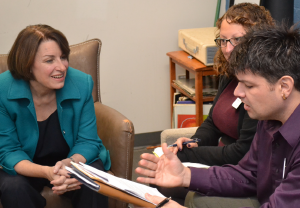
After interviewing six of the top tier candidates this year, and long sessions of discussion and deliberation based on those interviews, the GR Committee told the Executive Board that all six had strong and compelling education and labor proposals and that each would be far better choices than the current occupant of the White House. The Committee also adopted an action plan for increasing our members’ experience with the candidates in the remaining two months as well as the presence of strong public schools in the primary discussion, and getting to members more information on specifics of the candidates’ education and labor positions.
“In all areas, we believe that each candidate would serve our members, students, and their families very well,” said Patrick Cogan, Chair of the Government Relations Committee. “Their responses to our questions regarding education, charter schools, IDEA funding, the Secretary of Education, educator student loans, civil and human rights, and why they believed they were most able to win, were exemplary and completely in-line with our core values and beliefs as an organization.”
“To be clear,” continued Cogan, “our decision should not be interpreted as ‘we recommend none of these candidates.’ Rather, that all of those we had the opportunity to interview would be excellent choices for our members.”
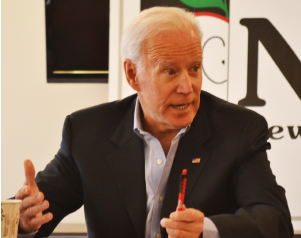
During their December meeting, the NEA-NH Executive Board voted to accept the GR Committee recommendation.
Recommending a Candidate
The recommendation process used by NEA-New Hampshire has been in place for many years and has been used countless times to make recommendations for federal and state offices. The Government Relations Committee is responsible for producing these recommendations and forwarding them to the Executive Board for approval and action.
The GR Committee is a standing committee of NEA-New Hampshire, consisting of 15 to 20 members. Voting committee members include teachers, education support professionals and retired members appointed by the NEA-NH president and approved by the Executive Board. NEA-NH staff members also attend GR Committee meetings but cannot vote on GR matters.
Face-to-face meetings allow the Committee to listen to the candidate’s responses, ask follow-up questions, and experience in-person how committed the candidate is to our issues.
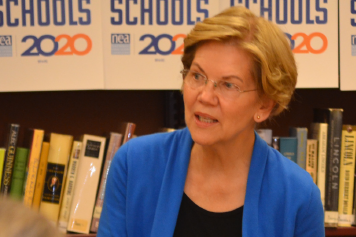
The GR Committee conducts candidate interviews, evaluates candidate’s positions in regard to education policy and forwards any recommendations to the Executive Board. It is up to the Executive Board to accept any recommendation and then act upon it, by announcing the recommendation, rejecting the recommendation, or voting to do nothing with the recommendation.
The NEA-New Hampshire Executive Board consists of NEA-NH members who have been directly elected by members in their region. Teachers, education support professionals and retired members are fully represented on the Board. Leadership positions, including president, vice-president, and secretary/treasurer, are directly elected by NEA-NH members, and are not appointed by the Executive Board. NEA-NH president, vice-president and secretary/treasurer are also considered to be Executive Board members.
Candidates also get a chance to hear about our issues, what matters most to our members, and what NH educators are looking for in a President.
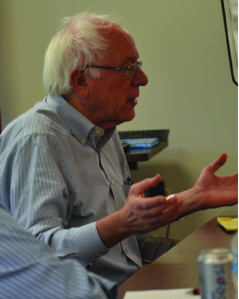
“The recommendation process we use is in place to take advantage of New Hampshire’s unique position as first-in-the-nation primary holder,” said Cogan. “We are not aware of any other NEA state affiliate that uses such a process or even conducts interviews as we do.”
“This position allows New Hampshire citizens early access to candidates, and our organization a chance to communicate to those candidates our position on matters important to our members,” said Brian Hawkins, NEA-NH Government Relations Director. “NEA-NH is the largest association of public employees in the state. Our recommendation does indeed have worth to a candidate, but more importantly, our ability to sit with each candidate, ask questions and report back to our members is even more valuable. We believe this process allows us to look beyond stump speeches and commercials, and more deeply into the candidate’s position on our issues,” continued Hawkins.
The process is not a popularity contest, or a method designed to survey our members to find who a majority of them support. It is designed to find out, face-to-face, where candidates stand on our issues, and then recommend to our members the candidate who the Committee believes would best serve our students, our members and public education. The Committee does not look at issues beyond public education and public sector collective bargaining rights.
As candidates announce their intention to seek office, the GR Committee reaches out to them to schedule an interview.
This year Vice-President Joe Biden, Mayor Pete Buttigieg, Senator Bernie Sanders, Senator Elizabeth Warren, Senator Amy Klobachar, and Senator Cory Booker scheduled interviews with the GR Committee.
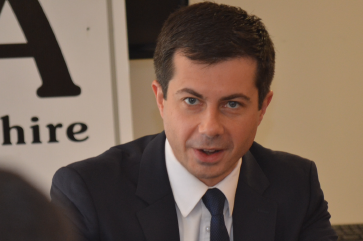
Each candidate was asked the same questions by Patrick Cogan, after which there was an opportunity for follow-up questions from other Committee members. Candidates finished the interview with a closing statement. Each interview takes approximately an hour.
At the completion of the round of interviews, the Committee meets to discuss the results, apply their evaluation criteria, and determine if they can recommend a candidate. There is much discussion and open debate and a final vote is only taken when the Committee agrees that they have exhausted their discussions.
The Committee forwards their decision to the Executive Board. The Executive Board acknowledges receipt of the Committee’s decision then decides how to act on it. They can accept the decision and make it public immediately, opt to delay publication of the recommendation, reject the decision, or choose to do nothing.
The Evaluation
The questions asked of each candidate were not provided to them beforehand. These are the questions each candidate was asked:
- Teacher, ESP and Education voices have been replaced by special-interest donors and for-profit corporations in the conversation about what works best in classrooms. What background of public education would your Secretary of Education have and how will your administration involve educators in the development and integration of education policy?
- NEA-New Hampshire believes the chances children have for success should not depend on winning a charter lottery, affording private school, or living in the right zip code. What steps will your administration put in place to give all public school students an equal opportunity and protect public funds to be used for public education?
- Each year, the federal government fails in its promise to fully fund special education. Where does this funding fit into your administration’s budget priorities?
- New Hampshire is the first state in the nation to pilot a program with the federal government that reduces the amount of standardized testing in favor of classroom authentic assessments which are integrated into a student’s day-to-day work. What role do
you believe standardized testing should play in the education of our youth? - Everyday our LGBTQ students face fear and struggle to be who they are. What are you and your administration going to do to focus on positive and healthy outcomes for youth and educators who are LGBTQ?
- Even with good grades and transcripts, many deserving students cannot afford a college education. The cost of a degree is outpacing the educators’ salaries. This is disincentivizing people from becoming teachers. How will you address the teacher shortages with regards to low salaries and high loans for educators?
- With recent and ongoing attacks against collective bargaining like the Janus decision, how would you support workers’ rights, especially public education employees to collectively bargain as a path to stabilize the middle class in this country? What will you do to counteract current attacks on workers’ rights to bargain?
- Mental health is a critically important issue for educators, students and families. Educators are trying to balance teaching the curriculum, while facing trauma, suicide prevention and other growing concerns among their students and themselves. As President what role do you see the federal government playing to address these very real challenges in our schools that confront our students, educators and administrators every day? Please be specific.
- How will you win this election? What differentiates you from your other primary opponents as the candidate that can best win/defeat Trump?
- What would a NEA New Hampshire recommendation mean to you?
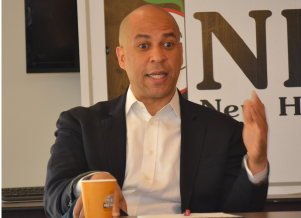
In evaluating each candidate, the Committee reviews their responses and their voting record. The committee is looking for past support of public education funding and policies, support of collective bargaining rights, and protection of retirement security for educators.
The Committee reviews the candidate’s proposed new policies and solutions, not just in terms of their agreement with our positions, but also their likelihood of successful passage and implementation. The right words without a feasible implementation plan is a hollow promise in the eyes of the committee.
Lastly, the Committee assesses each candidate’s electability. Winning a presidential campaign takes a great deal of resources, organization and support, and the Committee evaluates each candidate’s campaign for strength and longevity. In many cases, the president and governor serve as a “goalkeeper” for educators and students, working to balance, and veto if necessary, the products of less-friendly legislatures and Congress. Electability becomes critical in cases such as these, since having no one in the executive office to protect the interests of public education and educators would be devastating.
Not An Easy Job
“Presidential primary candidate’s schedules are hectic, packed with events, and always subject to last minute changes,” said Cogan. This year, candidate interviews were done in Concord, Exeter and Portsmouth in order to meet the most number of candidates the committee could prior to making a recommendation to the board.
“Committee members displayed dedication, logging miles, conducting interviews on weekends, and plodding through snow-covered sidewalks this year,” said Cogan.
In the end, it was apparent that members have many candidates with strong positions on public education.
“That is not surprising,” said Hawkins. “NEA and NEA-NH has been engaging with these candidates from early on in their campaigns. So several of these candidates have utilized the educator input our members have been communicating to them when developing their education priorities. In fact, members should even seek out the candidates who did not make it in by going to strongpublicschools.org and look out for notices from NEA-NH about candidate appearances in their local area.”
“No matter who you support, be sure to vote in February,” he added.
